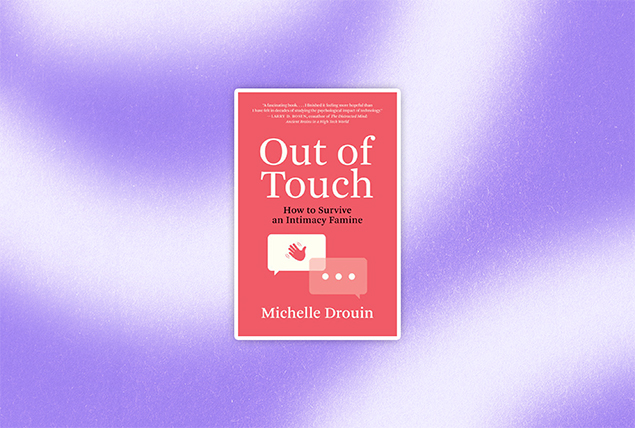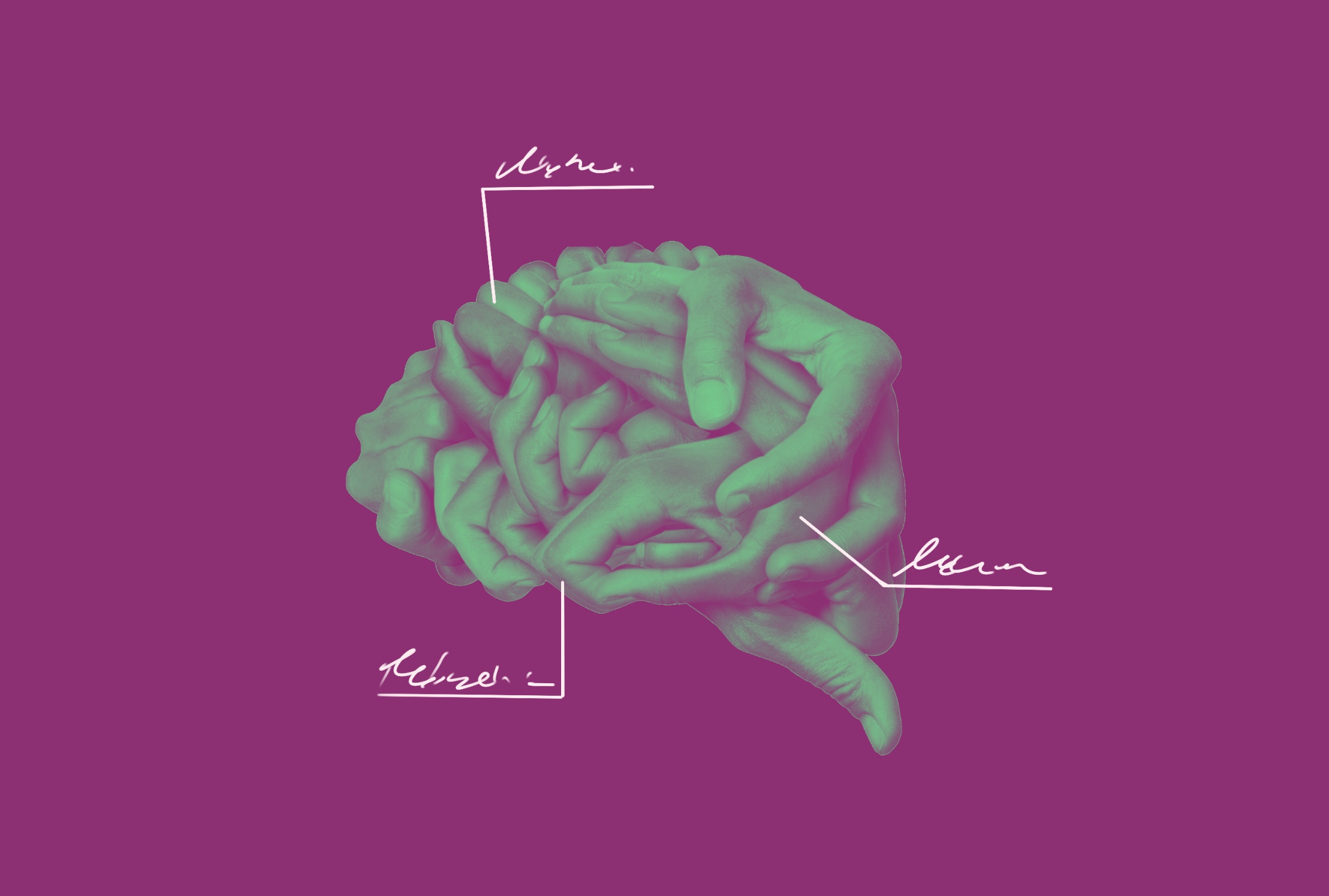Between the Pages: 'Out of Touch' Investigates the Intimacy Famine

In her book, "Out of Touch," Michelle Drouin, Ph.D., a professor of psychology at Purdue University Fort Wayne, Indiana, investigates the "intimacy famine." This is the name she's given to explain why relationships carried out on technological platforms are not giving people the deeper physical and emotional connections they crave.
"Out of Touch" covers the importance of touch, "desire discrepancy" in marriage, the value of friendships and more.
In this exclusive interview, Drouin discusses sexting, online dating, robots and why dopamine hits from social media don't compare to oxytocin from real sex.
Editor's note: This interview has been edited for length and clarity.
Please start by telling us about your background in psychology and how it led you to write this book.
I am an experimental psychologist, which means I was trained in how to conduct research. I started my research looking at children's literacy, but I did so at a time when people were sending text messages for the first time.
I started looking at how text messages were influencing literacy. From there, I quickly moved to sexting. Then I got pretty interested in the broader question of how technology influences human interactions in general.
What do you mean by 'intimacy famine?'
I believe what was exacerbated by the pandemic was a trend that had already started. People were becoming less deeply connected and more shallowly connected. The true opportunities for different forms of social intimacy, intellectual intimacy, physical intimacy, all these different types, were actually being impaired by our reliance on technology.
The intimacy famine is the lack of deep and meaningful connection in people's everyday lives.
What do you see as the pros and cons of sexting?
The pros are that sexting allows sexual expression. And I'm pretty much in favor of anything that allows people to communicate. Sexuality is something that's sometimes hard or taboo for people to talk about, but sexting offers a vehicle for people to express their desires, likes, wishes, and fantasies with potential or existing romantic partners.
The research is pretty clear it could help couples connect. But for people already together, aside from some benefits to sexual happiness or satisfaction, there aren't a lot of benefits to sexting.
The biggest study I've done on the topic, with latent profile analysis with Brandon McDaniel and Adam Galovan, showed there are a lot of negative correlatives of sexting, such as ambivalence in the relationship, more conflict about technology use, sometimes more pornography use and conflicts in general. The study was published in February 2018.
Additionally, one of the biggest downsides of sexting is you're engaging in a risky activity that potentially leaves you vulnerable to having this leaked or shared beyond what you wanted them to be.
Many find online dating to be overwhelming. What guidance would you have for someone who is having trouble managing the variety of options?
My advice is clear: Try to see people in as many environments as possible as quickly as you can. A lot of people waste a lot of time in online dating limbo. They're nursing along connections they're not really sure about and I think that can be a real time-suck.
It's a dangerous thing to be spending time managing multiple relationships with people that ultimately go nowhere. I think it leaves people with a lot of decision fatigue and online dating fatigue.
A lot of people are really getting tired of the online dating process because it does leave them feeling like, "I'm making all these efforts and so few of these efforts turn into something meaningful."
The best thing to do is move those conversations quickly to a voice call, and if that works out, move to a video call so you can have multiple mechanisms by which to interact with individuals to see them in different environments.
How does the dopamine hit people get from social media and dating apps compare to the oxytocin you get from cuddling or sex?
It's a completely different mechanism. In the brain, the dopamine reward pathway is giving us fuel that can turn into an addiction, which just really makes us feel excited about the novelty of something.
Eventually, that wears, whereas oxytocin is the bonding chemical, so it's not based on solely reward and novelty. It's based on something that helps you secure and maintain long-term bonds. Oxytocin helps us bond with others.
You're talking about a short-term burst versus what is potentially a long-term connector between individuals.
You write that if you were to take away one thing from the book, it would be to go to bed at the same time as your partner. Why is that so critical?
In another study with Brandon McDaniel that was published in February 2021, we looked at bedtime and what couples do at bedtime.
We found people's bedtime satisfaction really does relate to their overall life satisfaction, which probably makes sense to a lot of people.
What we found was that one of the things that helps people feel bedtime satisfaction was going to bed with their partner. It almost doesn't really matter what you're doing as long as you're going to bed with your partner.
What are your thoughts on intimacy with robots? Do you think humans will be able to connect with robots in the same way they do other humans?
I think that's definitely where we're headed. In fact, the conversations people have with robots will eventually be better than those we have with other humans. They will not be tired, they won't be crabby and they'll always be responsive to us. They'll have a wealth of knowledge about us that will help them tailor their responses to us.
Robots can be so personalized and tailored, and they can really learn us better than probably any human can. They're going to be able to have capabilities that humans just can't ever have.
Right now, they have limitations. But I predict within my lifetime—probably within the next few years—we're going to have AI similar to the movie "Her," where Scarlett Johansson was this brilliant, amazing AI assistant that someone could talk to.


















